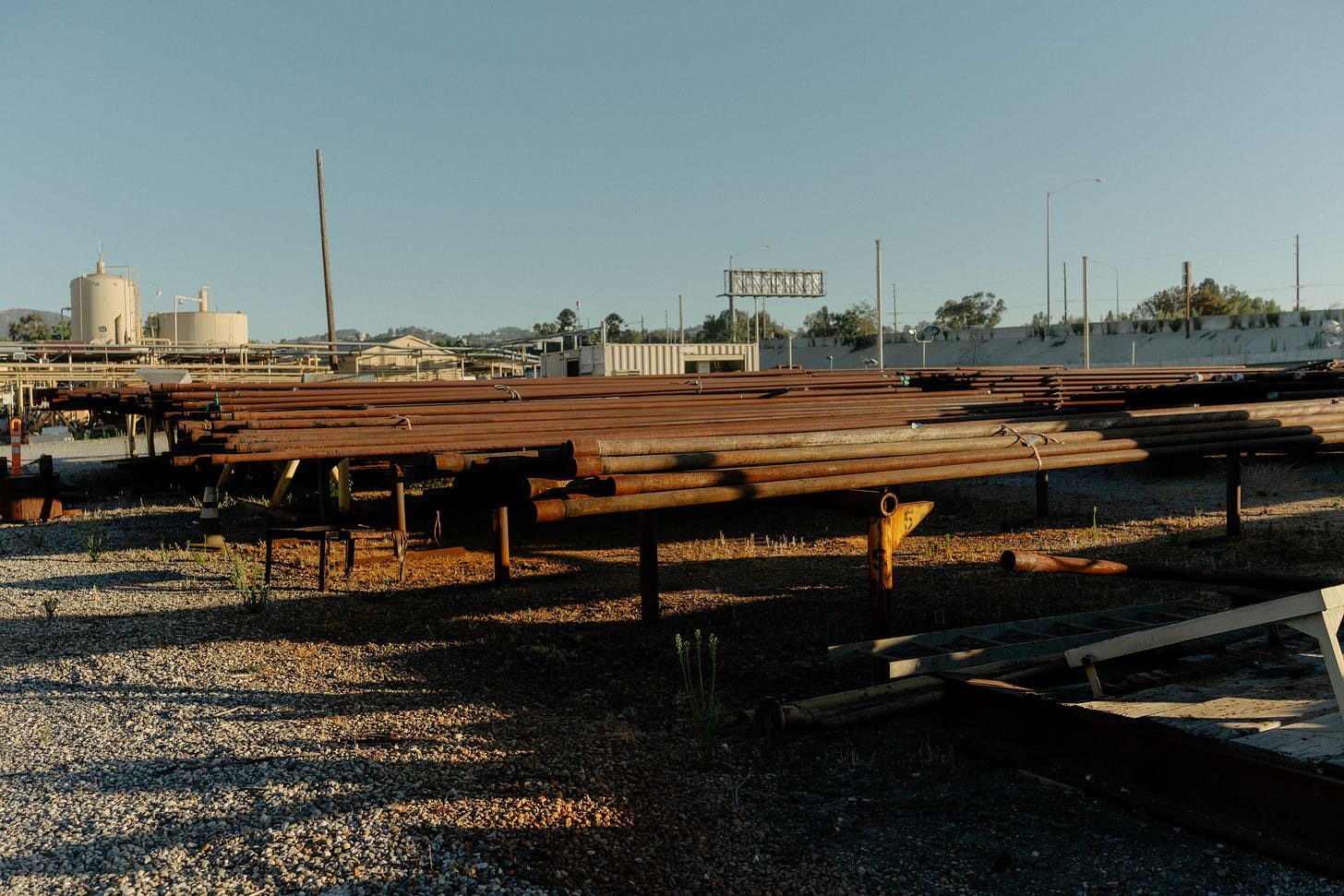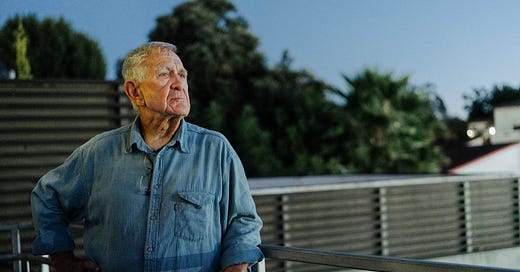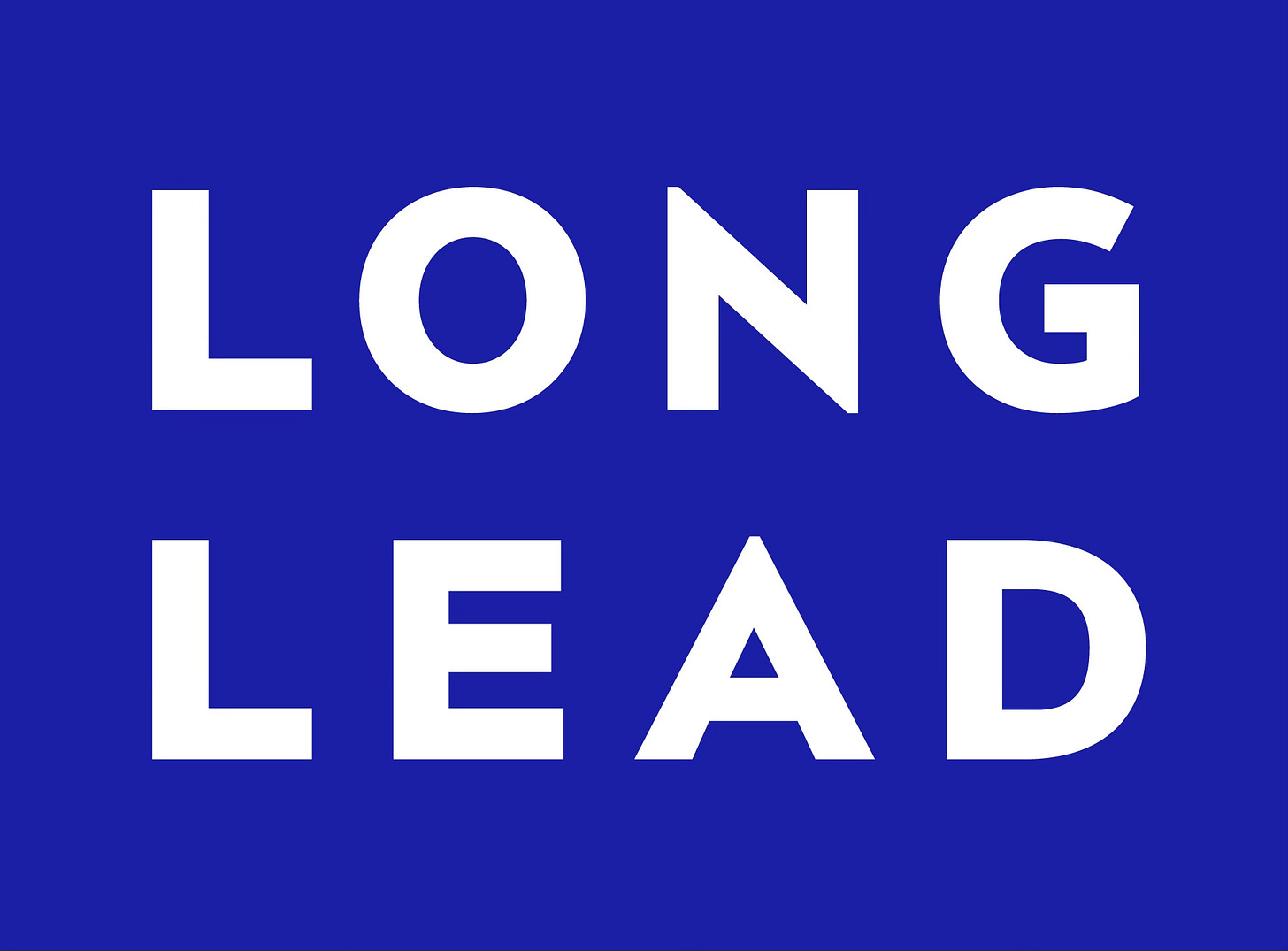Day 16: Closing arguments pit "real progress” against a "deeply broken system”
The fate of hundreds — if not thousands — of unhoused, disabled veterans now lies in Carter's hands.

After a nearly month-long trial that featured testimony from generations of U.S. military veterans, high-ranking Veteran Affairs administrators, homelessness experts, and Los Angeles County officials, the historic Powers v. McDonough case concluded Friday with both the plaintiff and defense counsels offering impassioned appeals directly to Judge David O. Carter.
The fate of hundreds, if not thousands, of unhoused veterans now lies in Carter's hands.
Home of the Brave is produced by Long Lead, an award-winning story studio dedicated to finding, financing, producing, and publishing original, in-depth journalism. From photo essays to podcasts and every medium in between, our features have been honored by organizations as varied as the Society of Professional Journalists and the Webby Awards. The American Journalism Online Awards even called our work “most likely to inspire future journalists.”
Stick with us after the trial ends. Subscribe to the Long Lead newsletter here:
Plaintiff’s attorney Mark Rosenbaum offered his side’s closing argument in an address that emphasized the needs of homeless veterans and the VA’s responsibility to care for them.
“The government owes a fiduciary duty to veterans disabled in the service of their country, a duty that for the last eight years and counting, it has astonishingly disavowed,” Rosenbaum said.
Rosenbaum invoked the Valentini v. Shinseki settlement of 2011 as a result that should not be replicated. The settlement was the impetus for the VA’s 2016 Draft Master Plan and the 2022 Master Plan, both connected to Rosenbaum as he was also a plaintiff’s counsel in that case.
“That suit ended in a non-enforceable settlement which the government has flouted, necessitating this case,” Rosenbaum said. “That is an error that must not be repeated.”
Rosenbaum said the VA had “deserted” its veterans, especially during the pandemic when “it turned a blind eye to hundreds of unhoused veterans languishing just outside its gates.” He called the VA’s response “indefensible.”
The plaintiffs requested that Carter declare the agreements with UCLA, Brentwood School, Safety Park, and with Bridgeland to be illegal.
As the plaintiff’s attorneys had done throughout the trial, Rosenbaum took aim at lease agreements the VA had entered into with UCLA and the Brentwood School for athletic facilities on the VA campus, labeling them “flagrantly unlawful.”
“These are not even close cases, your honor,” he said.
Rosenbaum added that the plaintiffs “sought to amend the complaint to conform to the extensive proof elicited trial about the illegality of the UCLA lease.”
The VA and UCLA had “acted quietly, they acted collusively, including the chancellor’s office, seeking to muffle veteran voices and stifle protest,” he said.
An epic government scandal hiding in plain sight
Home of the Brave is a multi-part, multimedia series exploring the unhoused veteran crisis at the West LA VA campus, a 388-acre property that was deeded to the U.S. government to provide veterans housing. Over the last 50 years, that land has been carved up and leased to private interests, while development for veteran housing has been painfully slow. This newsletter reports the rest of the story — how veterans are fighting to reclaim the land in a class-action lawsuit against the Department of Veterans Affairs.
Home of the Brave chronicles a land grab dating back to the U.S. Civil War, bursting with government malfeasance, neglect, graft, and even death. Read it today.
The VA’s own leadership and staff members, like John Kuhn, deputy medical center director, and Keith Harris, homelessness agent for the West LA VA campus, had testified to the importance of housing to homeless veterans, Rosenbaum said. “Dr. Harris characterized housing as part of the healthcare program,” he said.
Rosenbaum excoriated the VA’s interpretation of a statute it claims prohibits it from building housing unilaterally with its own funds.
“Nowhere does the statute say that enhanced-use leases must or shall be utilized to construct permanent supportive housing,” Rosenbaum said. “It says ‘may’ over and over and over again.”
The VA, Rosenbaum said, had outsourced many of its responsibilities to third-parties.
Rosenbaum continued on to pillory what he said were the VA’s failures to address everything from staffing shortages, outreach efforts to homeless veterans, and the treatment of veterans who were eventually placed in housing.
“Ms. Wright, stranded in Lancaster, unable to see a specialist for her worsening arthritis… she testified about her loneliness,” Rosenbaum said. “She testified about her depression from living in Lancaster, isolated from her veteran community.”
Wright “desperately” sought housing on the VA grounds, he said.
But even after his criticism, Rosenbaum noted that “there are, within the VA, well-intentioned, capable, and motivated individuals who are prevented from doing their best by the government's deeply broken system.”
“The government owes a fiduciary duty to veterans disabled in the service of their country, a duty that for the last eight years and counting, it has astonishingly disavowed.” — Mark Rosenbaum
The plaintiffs requested that Carter enjoin the defendants from contracting with developers who include disability benefits as income and failing to provide plaintiffs with permanent supportive housing on or near the West LA VA grounds.
The plaintiffs also requested that 750 units of temporary housing be finished within 18 months of the order, and that the VA develop a plan to place 1,800 units of permanent supportive housing on the campus within six years. They also asked that Carter order the hiring of additional staff and the prohibition of land use agreements that do not principally benefit veterans.
“The VA has 388 acres and a moral and legal obligation to the disabled veterans it professes to serve,” Rosenbaum said. “It's time to get it right.”
Carving up the map
After prohibiting veterans from living permanently on land donated to house them, the VA entangled itself in a wild array of leases on the valuable Los Angeles property — from soccer pitches to parrot sanctuaries — inhibiting the government from solving a homeless crisis of its own creation.
If the VA isn’t housing veterans on this land, what is the property being used for? Learn more by reading Part Four of Home of the Brave.
Defense counsel Brad Rosenberg offered his rebuttal to Rosenbaum’s closing argument, noting that the VA had made “substantial progress” in addressing veteran homelessness and criticizing the plaintiff’s demands as untenable.
Rosenberg touted the VA’s “One Team” initiative, in which VA representatives coordinate services with outside service providers, as having increased permanent housing placements by 38% and connected 90% of homeless veterans on a “by name list” with services.
“As a practical matter, Judge Carter, that means that virtually every veteran that VA actually connects with has a service provider,” he said.
Rosenberg also noted that the most recent point-in-time count showed a 25% decrease in the number of homeless veterans. “That’s real progress,” he said.
The VA campus, Rosenberg said, should not be the only solution to veteran homelessness adding that veterans should have a “choice” of where to live.
“The veteran is living in San Luis Obispo, why should they have to come down to West LA to have housing when instead they can have housing where they already are?” he asked.

Regarding the leases, Rosenberg argued that the VA’s fiduciary obligations include “maximizing the benefits that it receives from third parties who have land-use agreements with the VA.”
Terminating the leases could lead to “costly” litigation and the VA would incur the costs to maintain “or potentially remove these facilities.”
“The unfortunate reality is that for many of the land-use agreements that the VA had — that it didn't cancel — it was stuck,” he said.
Rosenberg said “HUD has done just about everything that the plaintiffs have asked it to do” when it waived the requirement to consider veteran’s disability payments as income during consideration for affordable housing.
But Rosenberg noted everyone was anticipating what the Treasury Department would also possibly do to address the issue, putting the court in an “awkward spot” in deciding the case.
How disability payments restrict homeless vets from getting housing
In this clip from "The Promised Land," a Long Lead documentary by Rebecca Murga, veterans describe how more severely disabled veterans are excluded from housing on the West LA VA campus.
Rosenberg also criticized the plaintiff's original request for a total of 4,000 permanent housing units (since revised down to 3,000 total units) as unfeasible and could possibly lead to unintended consequences.
“One of plaintiff's claims in this lawsuit… is that, essentially, plaintiffs are being segregated and discriminated against, not being provided services in an adequately integrated fashion,” Rosenberg said. “I predicted that the testimony would reveal that the relief that plaintiffs are seeking would have the ironic result of actually institutionalizing the very people that everyone in this courtroom wants to serve.”
“At least that’s what Mr. Kuhn thinks,” he said.
Rosenberg posited that the volume of housing requested should be decreased and that there would be a “significant financial burden” on the VA to build the housing.
“Plaintiffs want to shift scarce VA resources to a single location, to house people with high needs,” Rosenberg said. “Whether or not the court thinks that's a good idea, we think it's a bad idea.”

Bridgeland attorney Ernest Guadiana provided his rebuttal next, stating that if the court decided to end the leases with UCLA and Brentwood School, the VA would gain facilities and valuable land for potential housing.
If the lease with Bridgeland were terminated, the VA would lose out on the 2.5% royalty fee which funds a shuttle service on campus and gain nothing as the land over the well would still be occupied by Bridgeland.
It may not be much, but it’s something, Guadiana said.
Next, plaintiff’s counsel Rosenbaum, in an impassioned speech in which he pounded the podium and rattled off argument after argument, rebutted issues raised by Rosenberg.
“Mr. Kuhn is a great guy, and anybody who has a team would want Mr. Kuhn to be on that team,” Rosenbaum said. “But Mr. Kuhn is an employee of the VA. He is not going to walk into this courtroom and say, I'm the deputy medical center director, and the medical center is violating federal law.”
“Plaintiffs want to shift scarce VA resources to a single location, to house people with high needs. Whether or not the court thinks that's a good idea, we think it's a bad idea.” — Brad Rosenberg
He listed the names of VA Secretary Denis McDonough, current medical center director Robert Merchant and a host of other high-ranking officials as “decision makers.”
“These,” he said, gesturing to the defense table, “are mid-level, some excellent, subordinates who are carrying out the policies.”
“But (the officials) are the ones who should have been in this courtroom to answer the questions in terms of the so-called justifications for these particular sorts of policies,” he said.
Regarding statements that had been made referring to homeless veterans as “hard to reach,” Rosenbaum noted that “the evidence was that even when they were on the doorstep at San Vicente, they were left out there to have their conditions worsened.”
And regarding the defense’s avoidance of terminating leases, Rosenbaum said “their argument is, ‘Whoa, we don't want to have to deal with litigation from Brentwood or UCLA. But bring on the vets — those we can say no to.’”
Judge Carter is set to deliver his opinion on Powers v. McDonough in early September.










Excellent article!